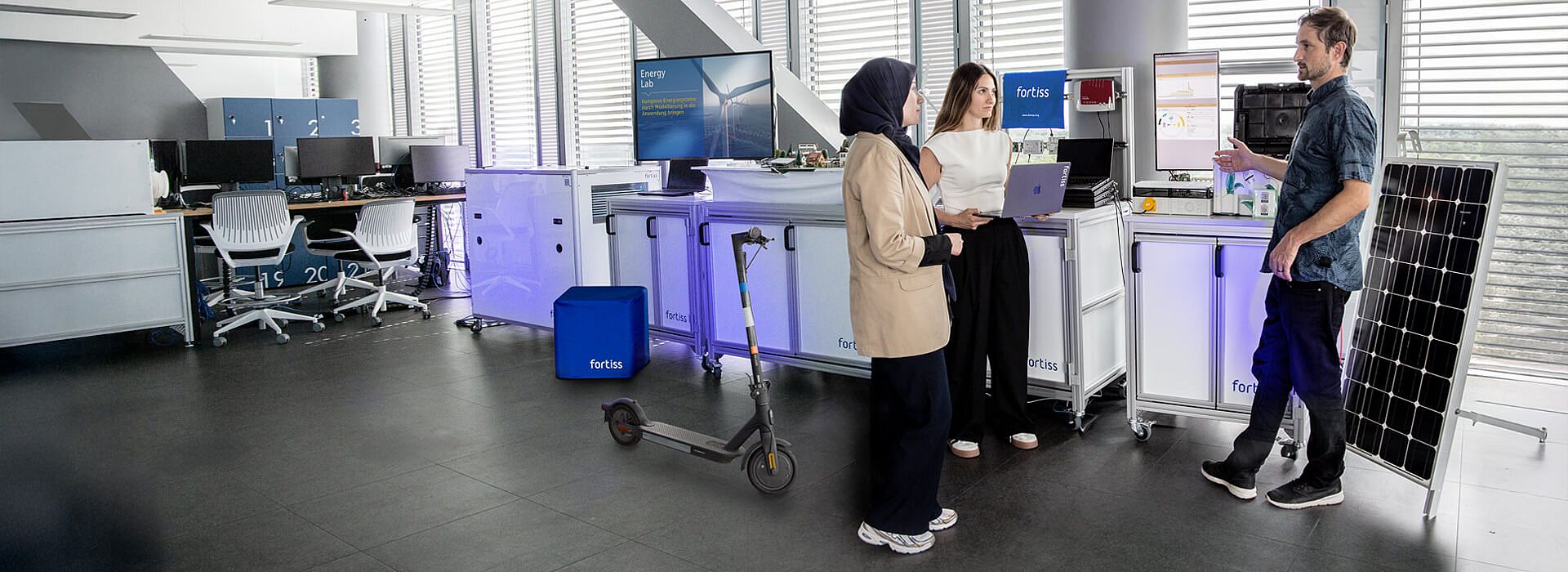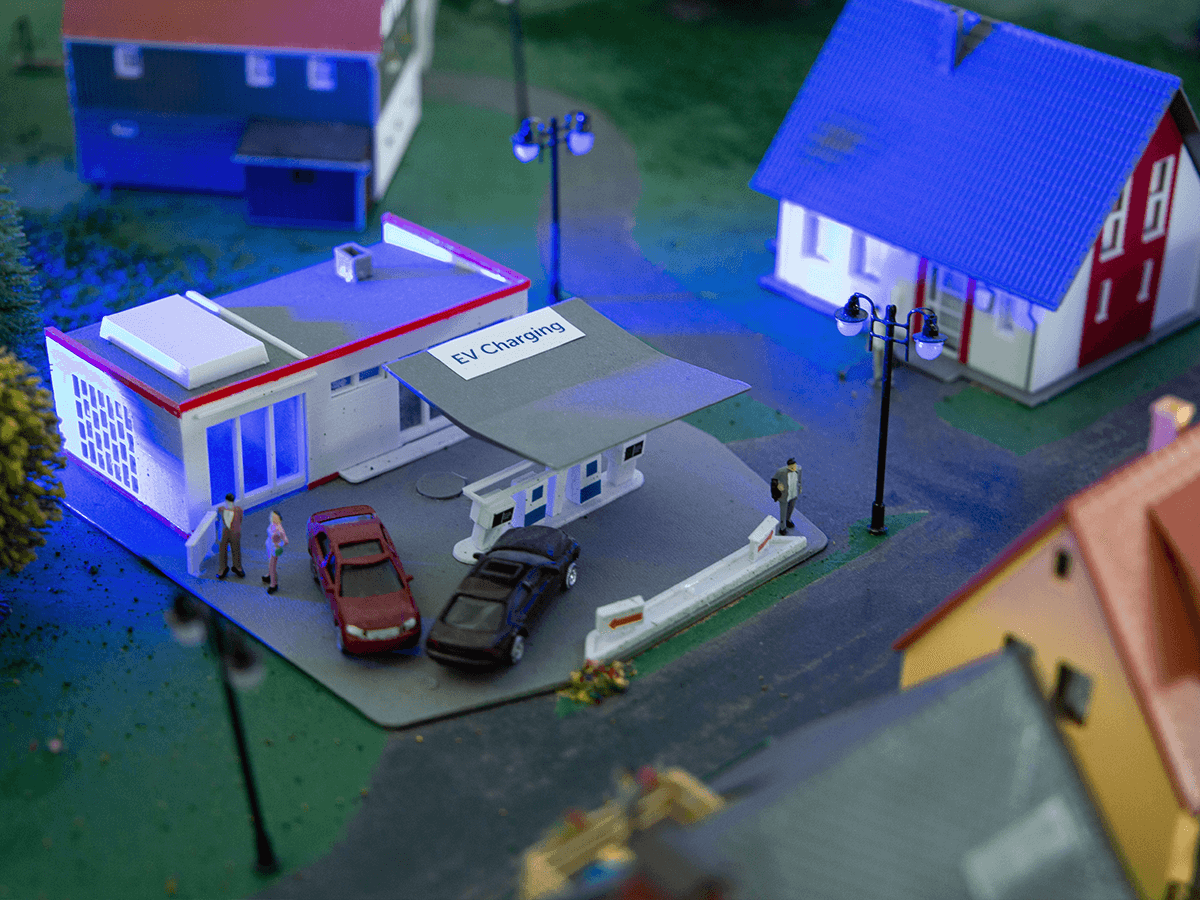
Bringing complex energy systems into the application through modeling

With this in mind, fortiss utilizes and expands the Energy Lab in research projects in order to represent various application scenarios and requirements. The applications illustrate, among other things, how different energy components such as battery storage, photovoltaic systems, sensors and control devices can be connected to one another using standardized interfaces.
To do that fortiss develops techniques and methods for designing and modeling cooperative, complex energy systems. Techniques for establishing interoperability also play a role here. Our scientists rely on artificial intelligence (AI) and machine learning (ML) in order to describe and take into account the physical interactions, system states and energy flows.
In the Energy Lab, various prototypes are evaluated using field tests in order to address real problems and challenges in the energy industry.